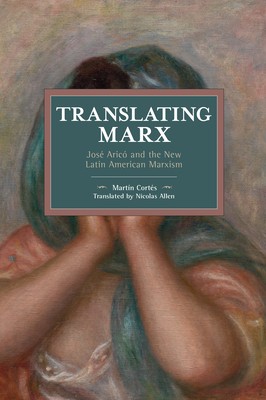
- We will send in 10–14 business days.
- Author: Martin Cortés
- Publisher: Haymarket Books
- Year: 2020
- Pages: 203
- ISBN-10: 1642593389
- ISBN-13: 9781642593389
- Format: 15.2 x 22.9 x 1.1 cm, softcover
- Language: English
- SAVE -10% with code: EXTRA
Reviews
Description
To speak of 'Latin American Marxism ' is to announce a problem. To what extent can Marxism, a theoretical universe forged from nineteenth-century European experiences, also be productive for grasping other realities? How can we begin to make sense of the historical disconnection between that specific corpus of ideas and Latin America 's popular movements? MartÃn Cortés addresses these questions by considering the trajectory and works of José Aricó, who sought to rethink and disseminate in Spanish not only the works of Marx himself, but also those of foundational socialist thinkers such as Antonio Gramsci.
Guided by an interest in Marxism 's renovation, Cortés explores Aricó 's vital contributions to key topics in political theory, such as the nation, the state, the political subject, and hegemony.
EXTRA 10 % discount with code: EXTRA
The promotion ends in 19d.23:23:02
The discount code is valid when purchasing from 10 €. Discounts do not stack.
- Author: Martin Cortés
- Publisher: Haymarket Books
- Year: 2020
- Pages: 203
- ISBN-10: 1642593389
- ISBN-13: 9781642593389
- Format: 15.2 x 22.9 x 1.1 cm, softcover
- Language: English English
To speak of 'Latin American Marxism ' is to announce a problem. To what extent can Marxism, a theoretical universe forged from nineteenth-century European experiences, also be productive for grasping other realities? How can we begin to make sense of the historical disconnection between that specific corpus of ideas and Latin America 's popular movements? MartÃn Cortés addresses these questions by considering the trajectory and works of José Aricó, who sought to rethink and disseminate in Spanish not only the works of Marx himself, but also those of foundational socialist thinkers such as Antonio Gramsci.
Guided by an interest in Marxism 's renovation, Cortés explores Aricó 's vital contributions to key topics in political theory, such as the nation, the state, the political subject, and hegemony.


Reviews